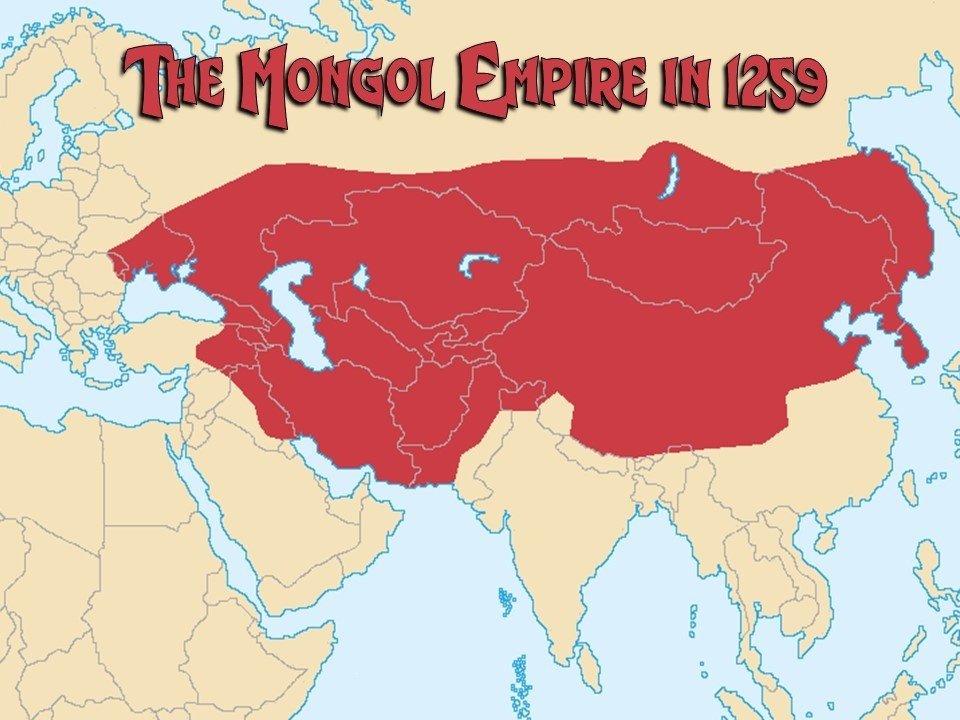Leaderboard
Popular Content
Showing content with the highest reputation on 01/15/22 in all areas
-
Maybe. Kazakhstan, by a wide margin, is the world's leading source of uranium. The Russians might have found a means to interfere there. In any case, to paraphrase Chris Hitchens, ideology poisons everything. Don't most riders prefer their horses to be shirtless?2 points
-
I mean there were arguments that seatbelts were unsafe and similar things in the past: https://www.businessinsider.com/when-americans-went-to-war-against-seat-belts-2020-5 At this point I am almost convinced that in human history there are no original discussions left anymore. We just keep rehashing old things and convince ourselves that somehow we are making progress.1 point
-
I suspect they might be referring to some misinterpretations that have been circulating in social media apparently (I have not seen the posts, but have been made aware of them). Basically a pre-print found that vaccinated folks who got infected produced fewer antibodies targeting the N-protein of the virus. In this context I think it is helpful if we get away from the notion of "strong" vs "weak" immune responses. The problem is that a "strong" response, can actually be harmful (cytokine storms are the most famous example). What we need is an "effective" response. I.e. a response that helps clearing the pathogen without or with minimal harm to the patient. Going back to the results, current vaccines target the S-protein of the virus. In other words, once an infection is detected, the vaccine-primed immune system will predominantly mount responses to this target. If effective, the response to the N-protein is going to be weaker than in folks who are not vaccinated, because, well, they don't need it. The virus is predominantly cleared using the S-protein as target. I.e. phrasing it as either a strong or weak response can create a bit of a misunderstanding of how things actually work and how effective the overall response is going to be to avoid serious illness.1 point
-
I honestly do not think that assuming that an octopus, given a few hundred million years of evolution, couldn't evolve into a space fairing species is a bit of hubris considering what was to be our ancestor several hundred million years ago. Pikaia1 point
-
Speaking of nuclear: the Russians wouldn't have such leverage if that was the preferred energy source, instead of gas, until other greener sources matured or new ones realized.1 point
-
That's because they were commissioned by a committee. The only NT book of which we have a reasonably reliable source is the epistles of Paul, and he probably did collect local folk tales and hearsay in his travels as a tax collector, as well as later, as a purveyor of the Christian startup. You have to admit, though, the franchise became phenomenally successful. There must have been something charismatic about the central figure to appeal to a wide range of cultural background. It's just universal enough to correspond to many ancient myths and just unique enough to be greeted as a novelty.1 point
-
! Moderator Note It’s not really an issue of common sense, or being dumb/smart, it’s one of knowledge vs ignorance. There was a point in time where you didn’t know the extent of the Mongolian empire, or when Marco Polo visited the east. You learned these things, and became better informed. You did not transition from being dumb to smart when this happened. So: 1. Don’t call people dumb 2. Proper referencing would include a link to a wikipedia article, rather than just mentioning that the information is available there 3. This is a discussion board, not your blog.1 point
-
As with all bacterial infections, it needs to overcome defenses, find a niche to colonize and compete with existing bacteria. Every part in our body that can be colonized, already is. A lone bacterium arriving in the gut even after passing the stomach will face billions and of others already occupying the niche and denying them nutrients. Pathogens have nifty tools to carve a niche, by e.g. using toxins and/or effector proteins that mess with the host and remodeling the environment for them. Even so, a single cell has little chance to be successful in acquiring enough resources to compete. Therefore, often pathogens use quorum sensing to regulate pathogenicity factors. If they are alone, they try to stick around but cause no disease. But once there are enough coming in, they communicate with each other and start producing toxins and other factors, which make the host sick. BTW, my wife, who is more on the clinical side mentioned that infectious dose I mentioned was likely an underestimate based on an error in one early paper on EHEC. About 500-700 cells are more likely, which is still considered very low for a food-borne pathogen. In folks with stomach acid issues they might be lower, but just physically a single cell (except of in vitro, perhaps) is unheard of.1 point
-
I do have some idea what 'nothing' and 'something' means, but I don't have any idea what is 'potential for /of /to something'. If you mean that it happened because it could happen, then it seems just circular, i.e. it could happen because it happened.1 point
-
This calculation cannot be done classically. You've hit the same wall that a generation of physicists (Abraham, Einstein, Lorentz) and a notorious mathematician (Poincaré) hit a century ago*. If the electron is point-like and static (static cannot be, we know this from QM), then the Poynting-vector approach (that @Markus Hanke referred to) gives you infinity, as the integral of \( \frac{\varepsilon_{0}}{2}\int_{0}^{\infty}\left\Vert \boldsymbol{E}\left(r\right)\right\Vert ^{2}dV \) is divergent. So the classical calculation is nonsense. The possibility that the electron is a little sphere of charge is even worse, as it is impossible to make it relativistically consistent. The pedestrian way of seeing it is that discontinuous charge densities in space-time do not bode well for relativistic invariance. You need fields that are smooth everywhere. The modern way of dealing with it is using QED (the fully-relativistic, quantum-mechanical version) and attribute part of the energy to self interaction of the electron. We could phrase it as 'the electron tries to move, emits a quantum of radiation, and suffers radiation reaction.' These virtual processes contribute to the energy. Unfortunately, for all I know, nobody has come up with a way of plugging in the fields (involving the electron's charge), and deriving from there the mass of the electron. The mass of the electron has to be plugged in by hand. This, I think, is an outstandingly-good question. By no means just a good question. Edit: * A century-odd, which was also an odd century.1 point
-
Not a lot, to me at least. For example, as a definition of 'energy': Energy doesn't always result in translation. OTOH, not an operational definition. As to 'action': Yes, good physicists are in that habit, because they have good reasons to think space is finite, and action in a confined space leads to quantised energy, for the simple reason that space-time confinement leads to a periodicity. Continuous energy is probably just a theoretical extrapolation. Same reason why angular momentum cannot be even conceived of but as quantised, because it's the conjugate momentum to an angle, which always restricted to a confined space \( \left[0,2\pi\right] \). Action again: Time, mass, and length are not derived from action. It's the other way around. As to the conclusion: This doesn't even make a smidgen of sense to me. I'm sorry. But I do have a sense of what the problem is with this kind of definitions/'derivations': They lack the operational point of view, on which all of physics rests, they engage in a loose runaway of concepts and statements, and consequently they lead to whatever preconfigured picture was already in the author's mind.1 point
-
It's starting to happen in Canada. Not content with educating people ( or evidently, doing a really bad job at it ), Canadian Governments are vilifying unvaccinated people. This is especially true of the Quebec provincial government Chris Selley: Quebec's anti-vax tax could lead us to some very dark places (msn.com) and the federal Liberal government of J Trudeau Tasha Kheiriddin: The unvaccinated must be deterred from harming others (msn.com) I would assume the next group of people that will be taxed for 'stressing' the universal ( ? ) health care system, will be smokers, drinkers, overweight people, drug users, malnourished people, etc. Exactly the people who are disadvantaged/uneducated, and immigrants or indigenous. The same people who can least afford the extra taxation. I have always said ideologies are a dangerous thing.1 point
-
Here is a conceptual explanation of the mechanics of this phenomenon:1 point
-
Seems North Korea is tired of being upstaged by Russia and China. KJU wants his rank as the world's #1 bad guy back. The North Korean missile launch grounded all flights on the West Coast ( and Alaska ) for the duration of the missile's flight into the Sea of Japan. FAA orders 'full ground stop' at ALL west coast airports (msn.com) I guess it's been too long since anyone paid attention to him ...1 point
-
When it comes to logic, the most common of logic is information technology, the characteristics of information technology include 2 types that are bit 1 and bit 0. Chemical reaction and nuclear reaction can both be the same. if it is composed of the simplest calculations based on bit 1 and bit 0. Now try for a calculation of a chemical reaction what is it? 2^8 = 256(calc) or how much is a nuclear reaction? 2^64 = 1.8 x 10^19(calc) 1Volt x 1calc x 1Ampere = 1Watt 1Volt x 256calc x 1Ampe = 256Watt-1 points
-
Do they have common sense? 1) Mongolia conquered China. Mongols killed 50% of the Chinese population. "...According to the Chinese history not more than one hundredth part of the population survived, the countryside was covered with human bones, the cities left desolate..." —“The Mongol Conquest Of China And Its Consequences”, by George Tait Edwards. 2)Mongols divided people into four classes, Chinese were the lowest. 1. Mongols 2. Semu people 3. Northern Chinese 4. Southern Chinese ---Society Under Mongol Rule, www.encyclopedia.com 3) Bayan, the Mongolian Grand Chancellor suggested killing all Chinese with one of the most popular surnames. Bayan of the Merkid, Wikipedia 4) Genghis Khan’s Yassa. “In cases of murder, one could ransom himself by paying fines which were: for a Mohammedan - 40 golden coins; and for a Chinese - one donkey (which was the cheapest).” 5) Marco Polo recorded that he met the Mongolian King, Kublai Khan, in Beijing. When Mongols took Beijing, Mongols killed almost the entire population of Beijing, and used the dead bodies to cook human oil. 6) After Mongols conquered China, China became a part of Mongol Empire. The Chinese King was ordered to commit suicide. Emperor Gong of Song, Wikipedia 7) Marco Polo recorded that Mongols called China as Manzi(barbarians). As European and Arab travelers started reaching the Mongol Empire, …. Southern China, ruled by the Song dynasty (By the Chnese King), was (called) Mangi, Manzi, Chin, or Sin. The word Manzi or Mangi is a derogatory term in Chinese meaning "barbarians of the south" but it was adopted by the Mongols to describe the people and country of Southern China. The name for South China commonly used on Western medieval maps was Mangi, a term still used in maps in the 16th century. Cathay, Wikipedia 9) At the tome of Marco Polo, China was a part of Mongol Empire. Please have a look at the map.-1 points










